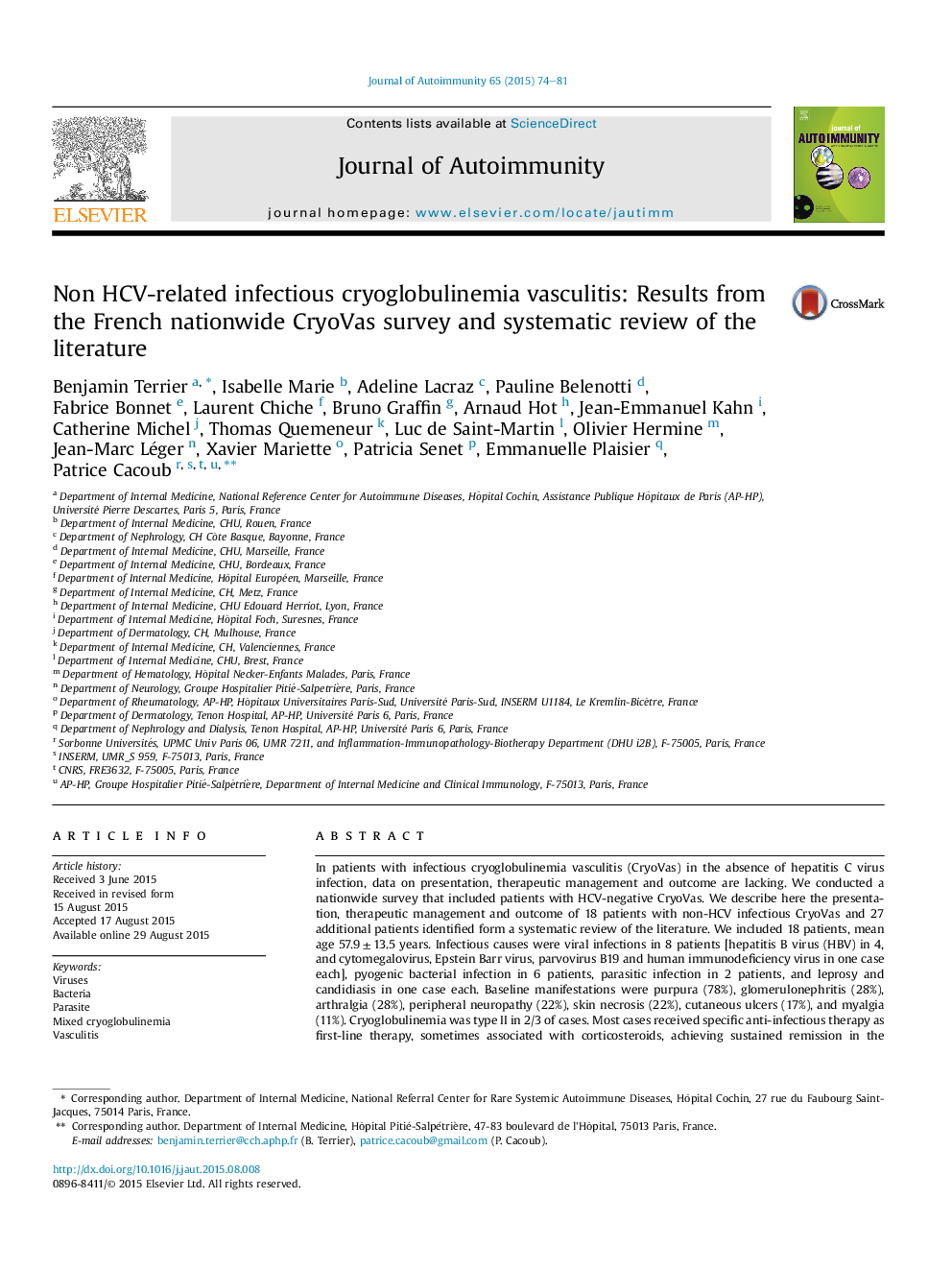| Article ID | Journal | Published Year | Pages | File Type |
|---|---|---|---|---|
| 3367700 | Journal of Autoimmunity | 2015 | 8 Pages |
•Data on patients with infectious in the absence of HCV infection are lacking.•Virus and pyogenic bacterial infections represent the main causes of non-HCV infectious CryoVas.•Anti-infectious specific therapy is most frequently associated with sustained remission.•Immunosuppressive agents should be considered only as a second-line option in patients with refractory vasculitis.
In patients with infectious cryoglobulinemia vasculitis (CryoVas) in the absence of hepatitis C virus infection, data on presentation, therapeutic management and outcome are lacking. We conducted a nationwide survey that included patients with HCV-negative CryoVas. We describe here the presentation, therapeutic management and outcome of 18 patients with non-HCV infectious CryoVas and 27 additional patients identified form a systematic review of the literature. We included 18 patients, mean age 57.9 ± 13.5 years. Infectious causes were viral infections in 8 patients [hepatitis B virus (HBV) in 4, and cytomegalovirus, Epstein Barr virus, parvovirus B19 and human immunodeficiency virus in one case each], pyogenic bacterial infection in 6 patients, parasitic infection in 2 patients, and leprosy and candidiasis in one case each. Baseline manifestations were purpura (78%), glomerulonephritis (28%), arthralgia (28%), peripheral neuropathy (22%), skin necrosis (22%), cutaneous ulcers (17%), and myalgia (11%). Cryoglobulinemia was type II in 2/3 of cases. Most cases received specific anti-infectious therapy as first-line therapy, sometimes associated with corticosteroids, achieving sustained remission in the majority of cases. Refractory or relapsing patients, frequently related to HBV infection, showed a complete remission after rituximab in addition to antiviral therapy. In contrast, corticosteroids and/or immunosuppressive agents used in the absence of anti-infectious agents were frequently associated with refractory CryoVas. Viral and pyogenic bacterial infections represent the main causes of non-HCV infectious CryoVas. Antimicrobial therapy is commonly associated with sustained remission. Immunosuppressive agents should be considered only as a second-line option in patients with refractory vasculitis.
